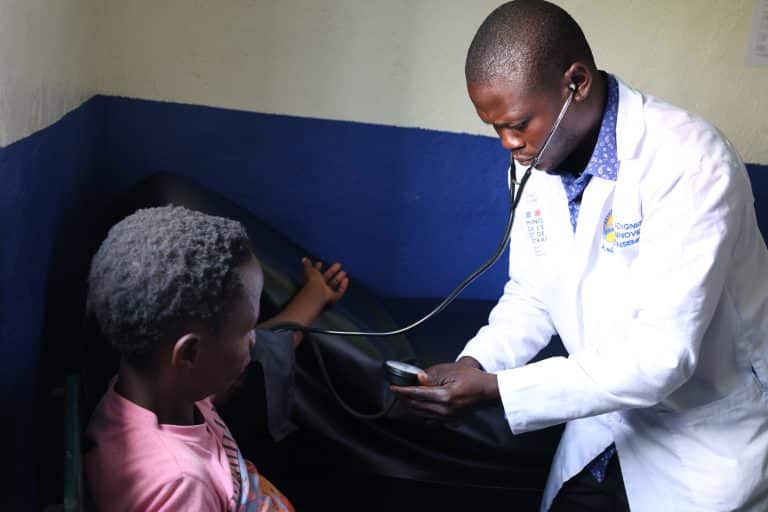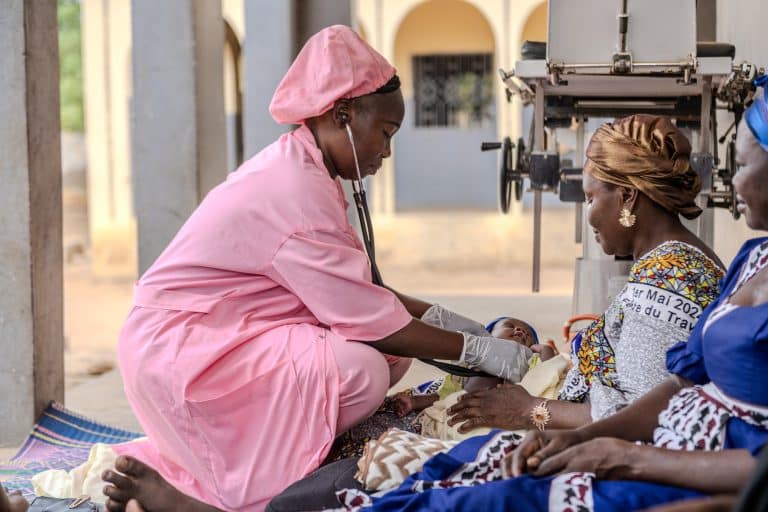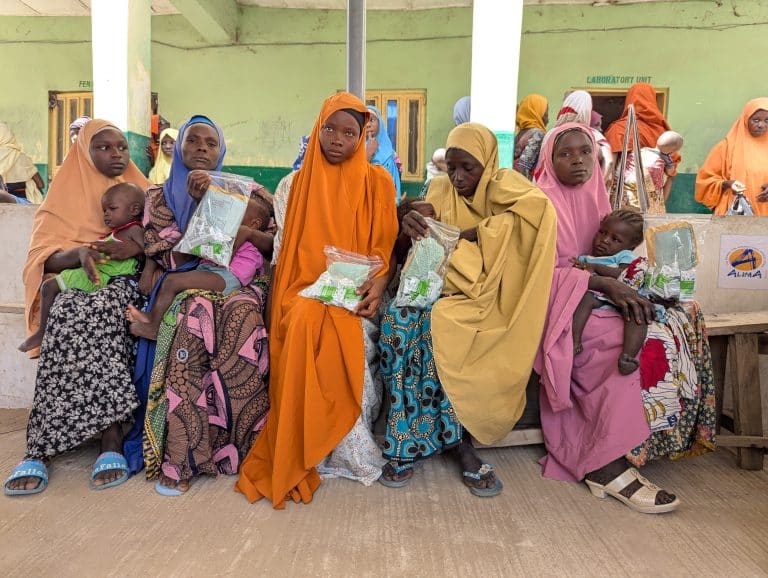“This is my second pregnancy, my first child did not survive. This is what motivated me to seek medical attention,” says Mariama, a 20-year-old woman. She is lying in the ultrasound room of the Sarekaly health center, one of the six centers equipped with mobile ultrasound scanners by ALIMA since August 2023. “I was informed about the ultrasound scanner at the Sarekaly health center, and I have never had the chance to use it before.”
“When I was expecting my first child, I took the pregnancy monitoring booklet from the health center,” she explains. However, after receiving her guidebook, Mariama did not return to the following antenatal care (ANC) check-ups, which are mandatory according to the World Health Organization’s protocol. In 2022, only 53% of women in the project area completed the four ANC sessions essential for appropriate monitoring and to prevent many pregnancy-related deaths and complications.
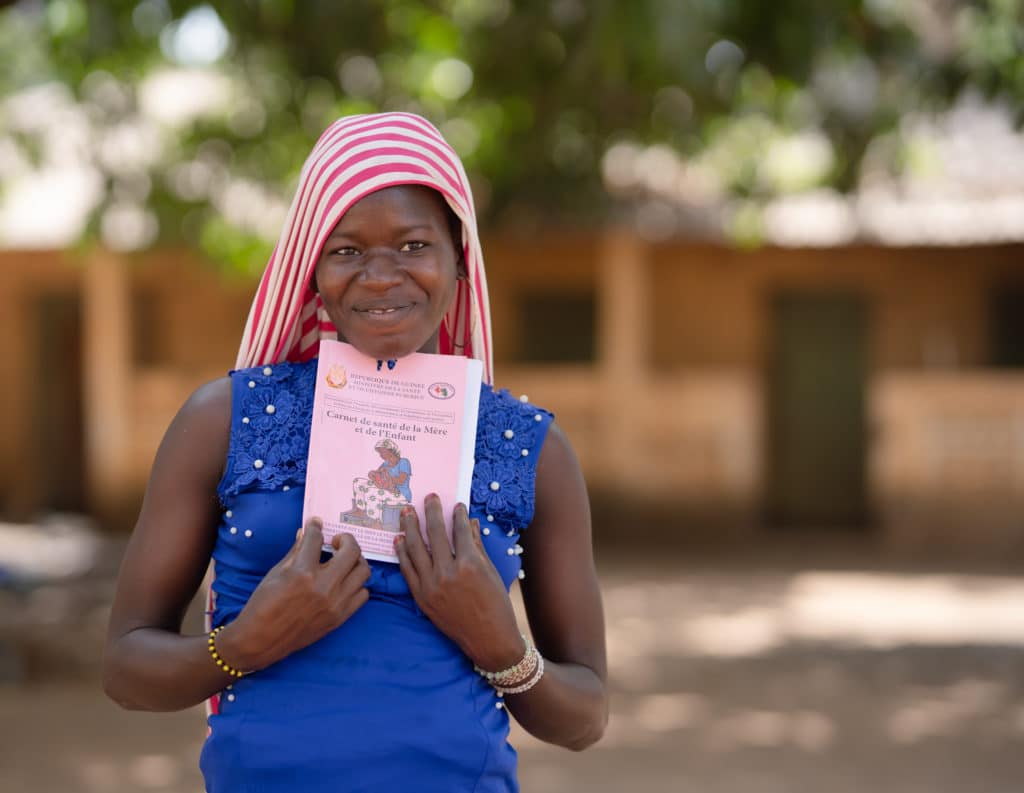
The Mobile Ultrasound Delivering Care to the Last Mile
“I gave birth at home, with the help of my mother-in-law.” Giving birth at home, without medical assistance, is the norm for most women in Guinea, particularly in this remote and mountainous region, where access to healthcare is challenging at best, and impossible at worst.
“The major challenge we face today is bringing healthcare to the most isolated communities, behind the mountains and across the river,” explains Dr. Sékou Camara, prefectural director of health of Telimele.
This is no small task. “The prefecture covers an area of 9,000 km2, and Telimele’s population is very dispersed. Many women live in sub-prefectures located 215 km away. We have only one prefectural hospital, and it had just one ultrasound,” he adds. A single ultrasound scanner in the only hospital, located in the far east of the prefecture…
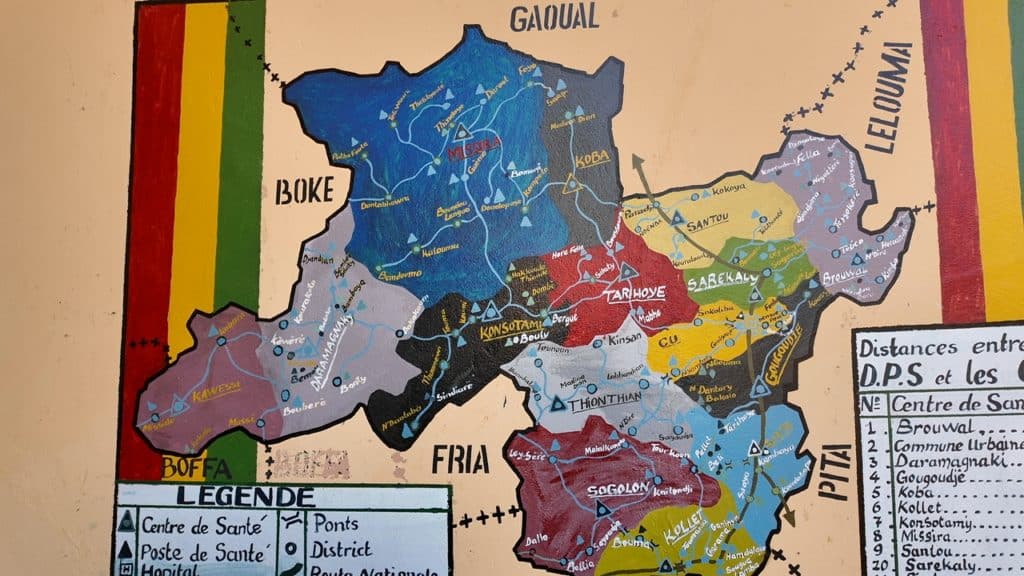
Before ALIMA introduced mobile ultrasound scanners, provided trained and supervised midwives and health workers in using them, ultrasound services were accessible to only a small minority of women, who could travel to the hospital and afford to pay the 50,000 Guinean francs (€5) fee, in a country where the average salary is around 480,000 Guinean francs (just under €50).
As a result, 686 women per 100,000 births died in childbirth in the region, compared to the national rate of 550 per 100,000 (according to the National Health Information Service). For context, the global maternal mortality average is 223 per 100,000 live births.
Promising Results After Nine Months of Project Implementation
The problem is that many women, like Mariama, do not complete their prenatal follow-ups and end up giving birth at home. The mobile ultrasound scanner, accessible in several villages, has effectively drawn women throughout their entire pregnancy.
“Since the project began, we’ve seen very positive changes,” notes Dr. Guilavogui Yassa, a referring physician at ALIMA. “We observed that 68% of women attended their fourth ANC visit, the last one before childbirth, compared to only 53% in 2022.” The rate of assisted deliveries also increased by 10% in one year, from 45% to 55%.
“In nine months, nearly 1,300 women received appropriate prenatal care thanks to mobile ultrasound scanners and 30 of them were referred to the Telimele hospital for complications. This undoubtedly is helping to reduce maternal mortality related to complications.”
Community Outreach: The Key to Success
Madjou, Moussa, Aissatou, Mamadou, Mariama, Fatoumata… These are the names behind this innovation. Community relays, village midwives, and supportive husbands have all contributed to this rapid improvement. Trained to raise awareness in their communities, these men and women organize gatherings and use every family, village, or religious event to share important health messages.
“During the awareness-raising sessions, the messages focus on specific topics: the importance of ANC, the warning signs if women are not monitored, the benefits of assisted deliveries, family planning, as well as sexual and reproductive health rights for young people and adolescents, etc.,” explains Ismaël Diallo. He is the coordinator of the Mounafanyi Federation of Kindia (FMK), a local NGO partnered with ALIMA, whose teams reach out to the most remote villages.
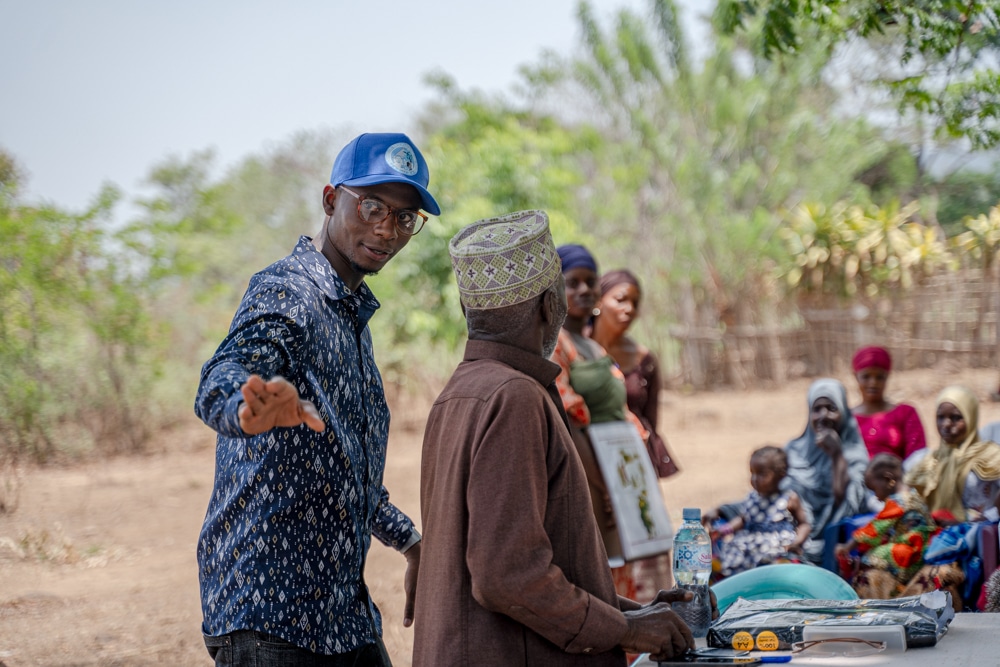
It was during one of these awareness sessions that Mariama learned about the ultrasound scanner available at the Sarekaly health center. She traveled a long distance to see her baby in her womb because the health center in her area did not yet have an ultrasound scanner. There is an urgent need to install these scanners in the nine other health centers in the prefecture and beyond.
This project has received financial support from the French Development Agency (AFD).
Santé maternelle en Guinée : comment les échographes mobiles sauvent des vies dans les zones reculées de TéliméléSanté maternelle en Guinée : comment les échographes mobiles sauvent des vies dans les zones reculées de Télimélé
Posted by ALIMA on Tuesday, Mai 5, 2024
Cover picture © Alexandre Bonneau – AFROTO / ALIMA


